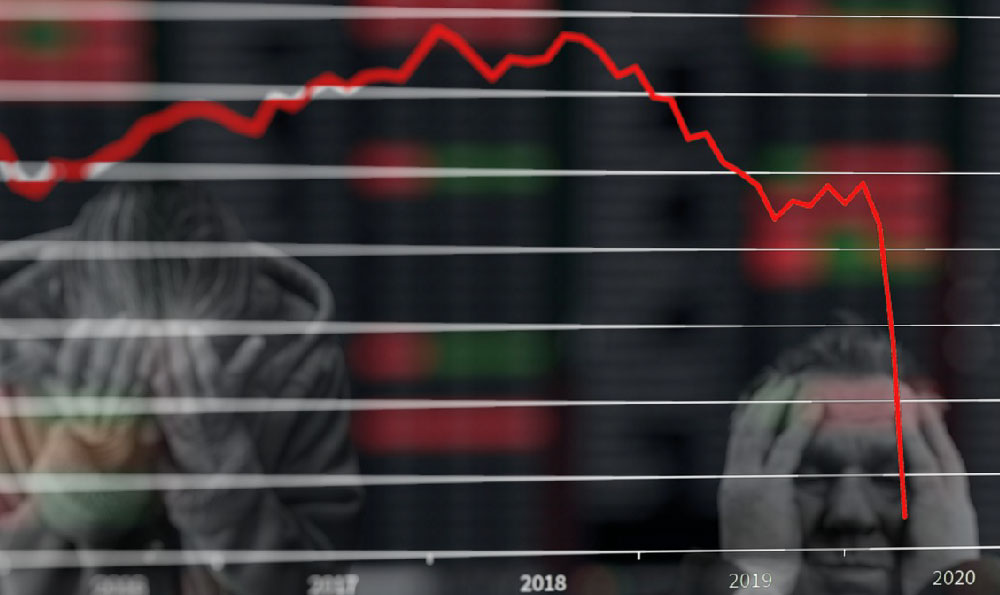Investing in cryptocurrency can be a rewarding, but also a risky endeavor. The volatile nature of the market necessitates a careful and informed approach. When faced with a specific sum like $2000, the question isn't simply "is it wise?", but rather "how can I make it wise through strategic allocation and diligent risk management?".
Assessing Your Risk Tolerance and Investment Goals
Before diving into specific cryptocurrencies or strategies, a crucial first step involves self-assessment. Understand your risk tolerance. Are you comfortable with the possibility of losing a significant portion of your investment in pursuit of high returns? Or are you more risk-averse, prioritizing capital preservation even if it means lower potential gains?

Equally important is defining your investment goals. Are you looking for short-term gains, perhaps capitalizing on market trends? Or do you envision a longer-term investment, potentially for retirement or a significant future purchase? Your risk tolerance and investment goals will heavily influence your chosen strategy. A short-term, high-risk approach might involve actively trading more volatile altcoins, while a long-term, low-risk strategy could focus on established cryptocurrencies like Bitcoin and Ethereum.
Building a Diversified Portfolio
The golden rule of investing applies to cryptocurrency as well: diversification. Putting all $2000 into a single cryptocurrency, especially a smaller, less established one, significantly increases your risk. Spreading your investment across multiple assets mitigates this risk.
Consider a portfolio comprising the following:
-
Bitcoin (BTC): Allocate a significant portion, perhaps 40-50%, to Bitcoin. As the oldest and most established cryptocurrency, it offers relative stability compared to altcoins. Bitcoin serves as an anchor in your portfolio.
-
Ethereum (ETH): Allocate 20-30% to Ethereum. Ethereum is not just a cryptocurrency but a platform for decentralized applications (dApps) and smart contracts. Its underlying technology has immense potential, making it a valuable addition to your portfolio.
-
Altcoins with Strong Fundamentals: Allocate the remaining 20-40% to altcoins. But this is where careful research is paramount. Look for projects with:
- A clear problem they are solving: Understand the project's purpose and its potential real-world applications.
- A strong development team: Investigate the team's experience and expertise.
- A vibrant community: A strong community indicates active development and user engagement.
- A viable business model: Assess the project's revenue generation strategy.
Examples of such altcoins might include those involved in decentralized finance (DeFi), layer-2 scaling solutions, or web3 infrastructure. However, remember that specific recommendations change rapidly, and independent due diligence is essential. Never invest solely based on social media hype or influencer endorsements.
Choosing a Cryptocurrency Exchange or Broker
Selecting the right platform for buying and selling cryptocurrency is crucial. Consider these factors:
- Security: Opt for exchanges with robust security measures, including two-factor authentication (2FA), cold storage of funds, and insurance against hacking.
- Fees: Compare trading fees, deposit/withdrawal fees, and other charges across different platforms. Fees can eat into your profits, especially with frequent trading.
- User Interface: Choose a platform with a user-friendly interface, especially if you're a beginner. Ease of navigation can prevent costly mistakes.
- Available Cryptocurrencies: Ensure the platform offers the cryptocurrencies you want to invest in.
- Regulatory Compliance: Choose exchanges that comply with regulations in your jurisdiction. This offers a layer of protection for your funds.
Popular exchanges include Coinbase, Binance, Kraken, and Gemini, but it's vital to research and choose one that best suits your needs and risk tolerance.
Dollar-Cost Averaging (DCA): A Strategy for Mitigating Volatility
Given the volatility of the cryptocurrency market, consider employing dollar-cost averaging (DCA). Instead of investing the entire $2000 at once, invest a fixed amount, say $100 per week, over 20 weeks. This strategy helps to smooth out the impact of price fluctuations. When prices are low, you buy more units; when prices are high, you buy fewer units. DCA reduces the risk of buying at a market peak and can lead to a more favorable average purchase price over time.
Staying Informed and Continuously Learning
The cryptocurrency landscape is constantly evolving. Staying informed about market trends, technological advancements, and regulatory changes is crucial for making informed investment decisions.
- Follow Reputable News Sources: Subscribe to reputable cryptocurrency news websites and newsletters. Be wary of sources that promote specific cryptocurrencies or offer get-rich-quick schemes.
- Read Whitepapers: When considering investing in an altcoin, read the project's whitepaper to understand its underlying technology and goals.
- Join Online Communities: Participate in online forums and communities dedicated to cryptocurrency. However, exercise caution and critically evaluate information shared by other members.
- Take Online Courses: Consider taking online courses to deepen your understanding of cryptocurrency and blockchain technology.
Security Best Practices: Protecting Your Investment
Protecting your cryptocurrency is paramount. Implement these security measures:
- Use Strong, Unique Passwords: Create strong, unique passwords for your exchange accounts and email addresses. Use a password manager to generate and store your passwords securely.
- Enable Two-Factor Authentication (2FA): Enable 2FA on all your exchange accounts. 2FA adds an extra layer of security by requiring a second verification code from your phone or a dedicated authentication app.
- Store Cryptocurrency in a Hardware Wallet: For long-term storage, consider using a hardware wallet. Hardware wallets are physical devices that store your private keys offline, making them much more secure than leaving your cryptocurrency on an exchange.
- Be Wary of Phishing Scams: Be cautious of phishing emails, websites, and social media messages that attempt to steal your login credentials or private keys. Always verify the authenticity of a website before entering your information.
- Never Share Your Private Keys: Your private keys are like your cryptocurrency's password. Never share them with anyone.
Avoiding Common Investment Pitfalls
The cryptocurrency market is rife with potential pitfalls. Be aware of these common mistakes:
- FOMO (Fear of Missing Out): Avoid making impulsive investment decisions based on FOMO. Do your own research and only invest in projects you understand.
- Pump and Dump Schemes: Be wary of pump and dump schemes, where groups of people artificially inflate the price of a cryptocurrency and then sell their holdings for a profit, leaving others with losses.
- Shitcoins: Avoid investing in "shitcoins," cryptocurrencies with no real value or purpose.
- Investing More Than You Can Afford to Lose: Never invest more money than you can afford to lose. Cryptocurrency investments are inherently risky, and there's a possibility of losing your entire investment.
Investing $2000 in cryptocurrency can be a wise decision, but only with careful planning, diligent research, and a disciplined approach to risk management. Start by assessing your risk tolerance and investment goals, build a diversified portfolio, choose a reputable exchange, employ dollar-cost averaging, stay informed, and prioritize security. By following these guidelines, you can increase your chances of success in the cryptocurrency market and protect your investment. Remember that past performance is not indicative of future results, and all investments involve risk. Always consult with a qualified financial advisor before making any investment decisions.












